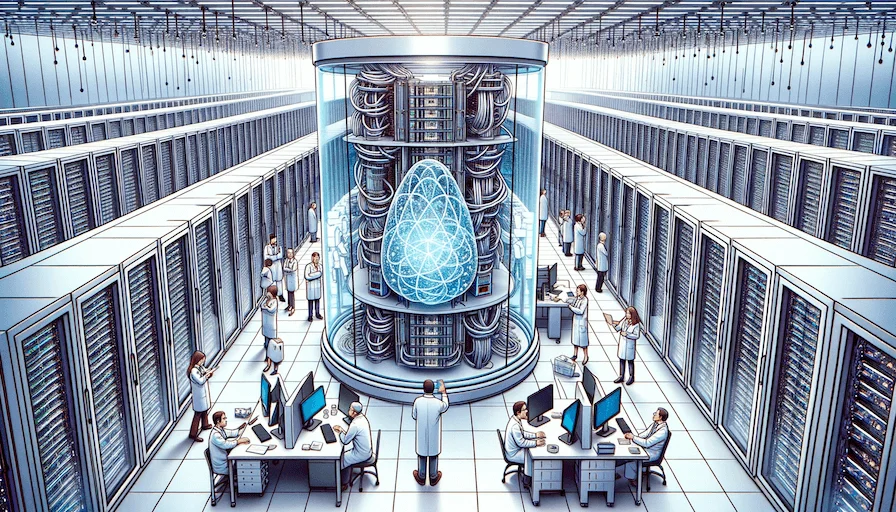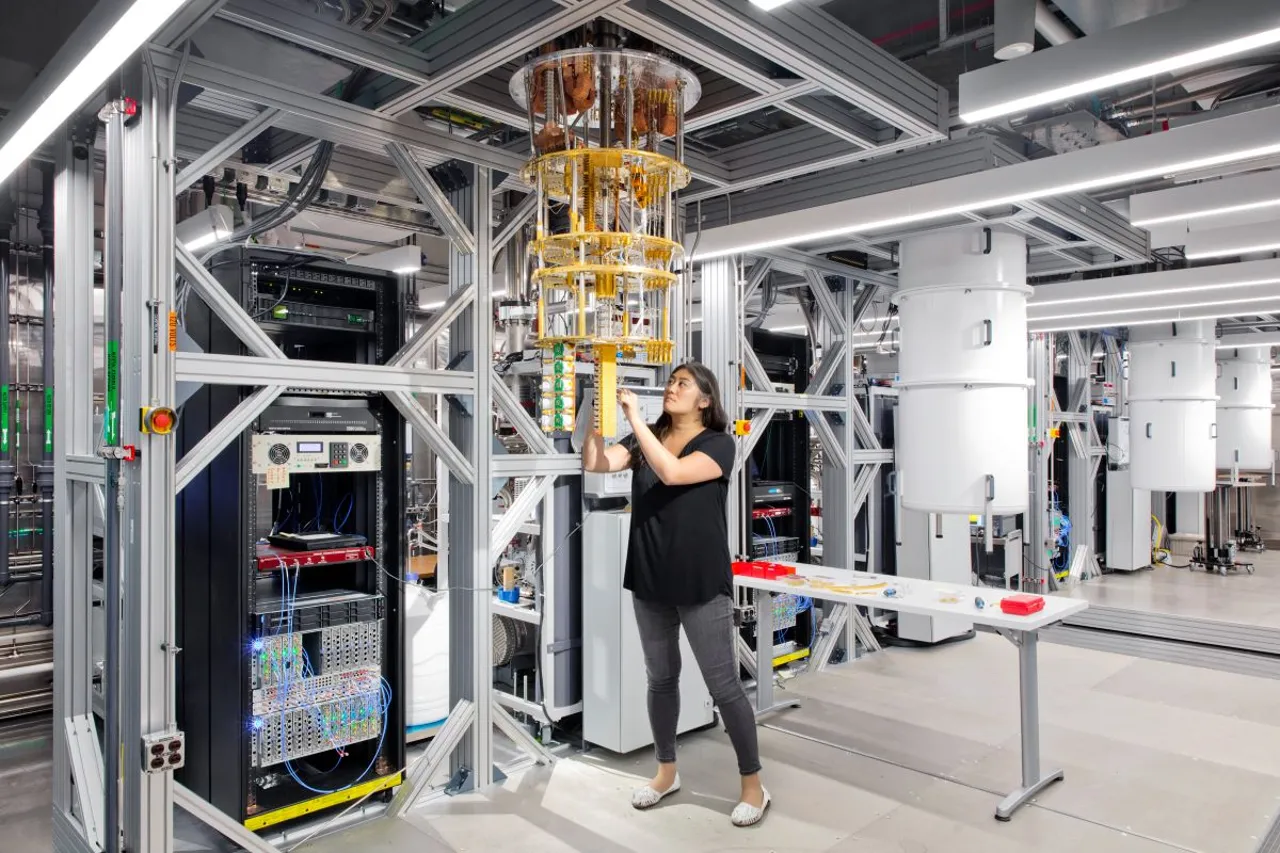Quantum computing is one of the most exciting and groundbreaking technologies being developed today. Unlike traditional computers, which rely on classical bits to process information, quantum computers use quantum bits or qubits. These qubits can exist in multiple states simultaneously, thanks to the unique principles of quantum mechanics. As a result, quantum computers have the potential to solve complex problems that are currently beyond the capabilities of even the most advanced classical computers.

In this article, we will explore the basics of quantum computing, how it works, its potential applications, and the challenges that lie ahead in making this technology a reality.
Understanding Quantum Computing
To grasp the essence of quantum computing, it’s essential to first understand its fundamental building blocks—qubits. Classical computers use bits, which represent information as either 0 or 1. Each bit is like a switch, which is either off (0) or on (1). These bits are processed through logic gates, performing computations in a step-by-step manner.
However, in quantum computing, qubits behave differently due to the principles of quantum mechanics—a branch of physics that studies the behavior of matter and energy at the smallest scales. Two key concepts in quantum mechanics make quantum computing possible: superposition and entanglement.
- Superposition: A classical bit can only be in one state—0 or 1—at any given time. In contrast, a qubit can be in a state of 0, 1, or both simultaneously, thanks to superposition. This means that a quantum computer can process a vast number of possibilities at once, vastly increasing its computing power compared to classical computers.
- Entanglement: Entanglement is a phenomenon where two or more qubits become linked, such that the state of one qubit is dependent on the state of another, even if they are separated by large distances. When qubits are entangled, the measurement of one qubit instantly affects the other, allowing for faster and more efficient computations.
How Quantum Computing Works
In a quantum computer, qubits are manipulated using quantum gates, which are similar to logic gates in classical computers but operate under the principles of quantum mechanics. By applying quantum gates to qubits, quantum computers perform computations that leverage superposition and entanglement.

A quantum computer doesn’t work in the same linear, step-by-step fashion as a classical computer. Instead, it explores many possible solutions simultaneously. For example, a classical computer might take a long time to solve certain problems—such as factoring large numbers or simulating molecular interactions—because it has to try each possibility sequentially. A quantum computer, however, can consider all possibilities at once, enabling it to find solutions much more quickly.
Quantum algorithms, such as Shor’s algorithm for factoring large numbers and Grover’s algorithm for searching unsorted databases, demonstrate the computational power of quantum computers. These algorithms solve problems exponentially faster than classical algorithms, showcasing the potential of quantum computing to revolutionize fields like cryptography, optimization, and material science.
Applications of Quantum Computing
Although quantum computing is still in its early stages of development, its potential applications are vast and far-reaching. Here are some of the most promising areas where quantum computing could have a profound impact:

- Cryptography: One of the most discussed applications of quantum computing is its potential to break modern cryptographic systems. Many encryption methods used today, such as RSA (which relies on the difficulty of factoring large numbers), would be vulnerable to quantum computers. Shor’s algorithm allows quantum computers to factor large numbers exponentially faster than classical computers, rendering many current encryption techniques obsolete.
However, quantum computing also has the potential to improve security through quantum cryptography, which uses principles of quantum mechanics to create secure communication channels that are theoretically unbreakable. Quantum key distribution (QKD), for example, allows two parties to share encryption keys securely, with any eavesdropping attempts immediately detectable.
- Drug Discovery and Molecular Simulation: One of the most promising applications of quantum computing lies in drug discovery and molecular simulation. Classical computers struggle to simulate the behavior of complex molecules because of the enormous number of variables involved in quantum interactions. Quantum computers, however, can simulate molecular structures and reactions more accurately and efficiently, allowing researchers to model interactions at the atomic level.
This could lead to breakthroughs in drug discovery, enabling pharmaceutical companies to develop new treatments faster and with greater precision. Quantum computing could also be used to simulate proteins, enzymes, and other biological molecules, unlocking new possibilities in medical research.
- Optimization Problems: Many industries face complex optimization challenges, from logistics and supply chain management to financial portfolio optimization. Quantum computers are well-suited to solving these problems because they can process multiple possibilities simultaneously.
In the transportation and logistics sector, quantum computing could optimize routes for delivery trucks, minimize fuel consumption, and reduce shipping times. In finance, quantum computers could optimize investment portfolios by analyzing vast amounts of data to identify the best risk-reward strategies.
- Artificial Intelligence and Machine Learning: Quantum computing could greatly enhance the capabilities of artificial intelligence (AI) and machine learning. Machine learning algorithms often require large amounts of data and computational power to identify patterns and make predictions. Quantum computers could process data faster, allowing AI systems to learn and adapt more quickly.
Quantum-enhanced machine learning could lead to advances in areas such as natural language processing, image recognition, and autonomous systems, accelerating the development of smarter AI systems with better decision-making capabilities.
- Climate Modeling and Sustainability: Climate change is one of the most pressing challenges of our time, and understanding its complexities requires enormous computational resources. Quantum computers could revolutionize climate modeling by simulating environmental processes at a level of detail that is currently impossible with classical computers.
By analyzing large datasets related to weather patterns, carbon emissions, and ecosystem interactions, quantum computers could help scientists develop more accurate models to predict climate change and inform sustainability efforts. This could lead to more effective policies and strategies for mitigating the impacts of climate change.
Challenges and Limitations of Quantum Computing
Despite its immense potential, quantum computing still faces significant challenges. Here are some of the key hurdles that must be overcome before quantum computers can be widely adopted:
- Error Rates: Quantum computers are highly sensitive to environmental factors such as temperature and electromagnetic interference. These factors can introduce errors in qubit states, leading to inaccurate results. Developing quantum error correction methods is a major area of research, and significant progress is needed to reduce error rates and make quantum computers reliable for practical applications.
- Scalability: Building a large-scale quantum computer with thousands or millions of qubits is another challenge. Currently, most quantum computers only have a few dozen qubits, and scaling up the number of qubits while maintaining coherence and minimizing error rates is a complex task. Researchers are exploring different approaches, such as superconducting qubits, trapped ions, and topological qubits, to overcome scalability challenges.
- Cost and Accessibility: Quantum computing technology is still in its infancy, and building quantum computers is extremely expensive. The infrastructure required to maintain qubits at extremely low temperatures and the expertise needed to operate these systems are significant barriers to widespread adoption. However, as the technology matures, costs are expected to decrease, and quantum computing could become more accessible to businesses and researchers.
Conclusion
Quantum computing represents a revolutionary shift in how we approach problem-solving in fields ranging from cryptography and drug discovery to optimization and artificial intelligence. By harnessing the principles of quantum mechanics, quantum computers have the potential to solve problems that are currently unsolvable by classical computers. However, significant technical challenges remain before quantum computing becomes a mainstream technology.
As researchers continue to make breakthroughs in quantum error correction, scalability, and accessibility, the future of quantum computing looks promising. In the coming years, we may see quantum computers unlock new possibilities in science, technology, and society, transforming industries and shaping the future in ways we can only begin to imagine.
